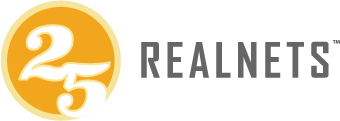In this modern day and age, the tech your company uses is absolutely critical to not only your day to day business dealings but to your ability to stay industry-relevant and competitive. Whether you’re an entry-level employee or the director of technology, at some point you’re going to hear about, directly encounter, or have the need to communicate with IT and its services. So, we’re going to break down some common IT terms that you should know for a clearer understanding of what’s involved and happening within your place of business.
- Cloud Computing – Cloud computing is the umbrella term that includes products, services, and platforms that allow users and businesses to access computing resources, delivered to them over the Internet (or other networks).
- Data Center – The data center is an archive for managing, storing, and disseminating data and information that’s organized around a specific business or body of knowledge. It’s essentially a facility that houses your computer systems, servers, components, and storage systems.
- Enterprise Architecture – This is essentially a function that helps businesses find the best ways to implement and strategize development, like a blueprint.
- Business Intelligence – This refers to a multitude of software and tools that businesses can use to analyze raw data, from data mining, to analysis, to reporting. Business intelligence allows you to make better business decisions, cut costs, and even create new business opportunities.
- Content Management – Content management is a compilation of tools, software, and processes that allow you to collect, manage, and publish information on any medium. It ensures that your content is both searchable and indexable so that users can easily find information.
- Cross-Platform – This is also referred to as the agnostic platform or application. Cross-platform is something that’s interoperable among different operating systems and platforms. Its main focus is on software that can run on any operating system and on any processor architecture.
- Disaster Recovery – Disaster recovery refers to your business’ ability to continue operations after experiencing a catastrophe, whether relating to a cyber-attack, a natural disaster, an accident, etc. – anything where IT downtime leads to loss of productivity and business earnings.
- Disruptive Technology – Disruptive technology is any new technology that surprisingly displaces an already established one. For example, how CDs replaced floppy disks, flash drives replaced CDs, etc.
- Virtualization – Virtualization has opened doors to virtual machines where programs can run very similarly to physical machines. It’s the overall development of a virtual version of an IT resource, such as a server or device, storage, or even an operating system.
- Green Technology – Green tech refers to environment-friendly innovations and technologies that relate to energy efficiency, renewable resources, recycling, health, safety, and more.
- IT Governance – This is corporate governance that focuses on information technology systems, overseeing performance and security risks.
- Adaptive Technology – Adaptive technology is a set of tools or products that have been created to help people with disabilities so that they can work more efficiently and productively. There’s also assistive technology, which consists of products and services that allow people with disabilities to use existing technology.
With a better understanding of these basic IT terms, you’ll be able to keep up with the progress, practices, and inter-workings of your business.


Recent Comments